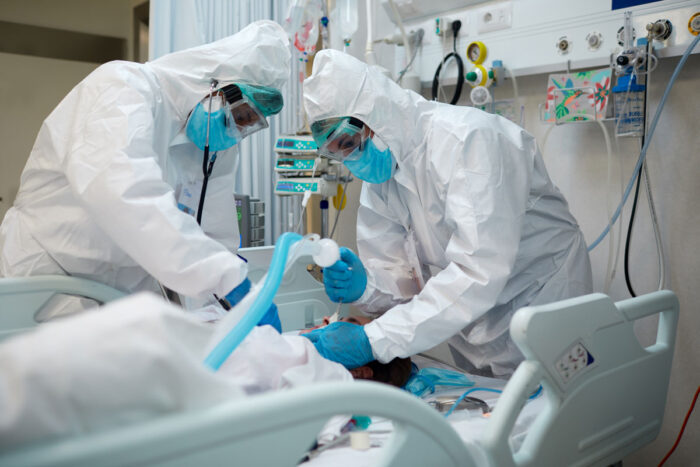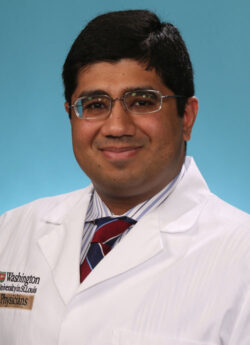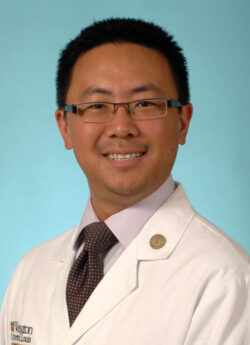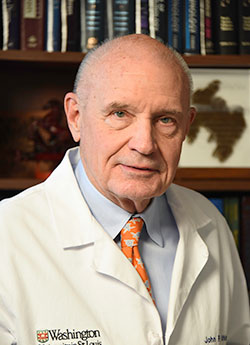Clinical trial focuses on reducing overactive immune response in COVID-19
FDA-approved drug for rare diseases of the complement system could help coronavirus patients
 Getty Images
Getty ImagesResearchers at Washington University School of Medicine in St. Louis are investigating whether a drug approved by the Food and Drug Administration to treat rare diseases of an overactive immune system could help critically ill patients hospitalized with COVID-19.
Researchers at Washington University School of Medicine in St. Louis are investigating whether a drug approved by the Food and Drug Administration (FDA) to treat rare diseases of an overactive immune system could help critically ill patients hospitalized with COVID-19. The drug blocks a specific protein of the immune system that doctors suspect contributes to dangerous responses triggered by coronavirus infection in the lungs, kidneys and blood vessels.
The drug, called ravulizumab, is a monoclonal antibody that inhibits what is called the complement system, which sits at the intersection of the body’s immune responses to infection and the coagulation cascade that controls blood clotting. The drug is approved by the Food and Drug Administration (FDA) to treat two rare genetic diseases, atypical hemolytic uremic syndrome and paroxysmal nocturnal hemoglobinuria, both of which cause life-threatening blood clots in small blood vessels.

“We are utilizing this FDA-approved drug for patients with severe lung complications from COVID-19 because the problems that some of these patients have appear similar to those of patients with these two genetic diseases, in which the complement system has gotten out of control,” said Hrishikesh S. Kulkarni, MD, principal investigator of the trial at Washington University and an assistant professor of medicine in the Division of Pulmonary & Critical Care Medicine. “There is evidence that activation of the complement system is at least partially responsible for some of the organ damage we see in patients with COVID-19. We believe blocking this activation is a viable approach to investigate.”
The trial is led and sponsored by Alexion Pharmaceuticals, which makes ravulizumab under the brand name Ultomiris. Washington University School of Medicine is one of 50 sites across four countries participating in this clinical trial. Worldwide, the investigators plan to enroll 270 adult patients. About 20 of those will be at Barnes-Jewish Hospital. These patients — who are admitted to intensive care units and need large amounts of oxygen because of severe pneumonia, lung damage or acute respiratory distress syndrome due to COVID-19 — will be randomly assigned to receive either intravenous ravulizumab plus best supportive care or the standard best supportive care alone.
One of the genetic diseases that leads to complement overdrive — atypical hemolytic uremic syndrome — causes damage to the kidneys in ways that appear similar to the kidney damage sometimes seen in patients with severe COVID-19, according to nephrologist Anuja Java, MD, an assistant professor of medicine and a co-investigator on the trial.

“Acute kidney damage is a well-known complication of COVID-19, with many patients needing dialysis,” said Java, who also directs the kidney transplant clinic at the John Cochran Veterans Affairs St. Louis Health Care System. “This clinical trial is a direct result of our understanding of the likely role of the complement system in the severity of COVID-19. We want to know whether modulating this system by using a complement inhibitor at the right time can potentially help these patients.”
In a review article published online in the journal JCI Insight, the researchers outline the delicate balancing act that the complement system maintains in the body and how it can potentially go wrong in some people fighting off a severe coronavirus infection to which their bodies have no history of exposure.
The investigators reviewed evidence that SARS-CoV-2, the virus that causes COVID-19, triggers the complement system in multiple ways and that patients who develop life-threatening COVID-19 complications fail to dial back complement after the initial viral infection is brought under control. Such patients with COVID-19 have problems that closely resemble those of patients with rare genetic disorders of the complement system. These problems include increased coagulation that can cause dangerous blood clots throughout the body, including in the vessels of the lungs, kidney, heart and brain. There is also recent research by other groups showing that some patients with COVID-19 have genetic variations that make them more susceptible to the complement system going into overdrive, even though they do not have a rare inherited disease.

“It appears that complement can be a friend or a foe,” said Alfred Kim, MD, PhD, an assistant professor of medicine. “We’re trying to understand what mediates the difference between a protective response to COVID-19 versus one that potentiates disease severity. It might not be the only trigger, but we lay out an argument that uncontrolled complement activation could explain a substantial part of what is going wrong in patients with severe disease.”

Said Kathryn Liszewski, an assistant professor of medicine: “This coronavirus has mechanisms to overcome the complement system that we don’t understand at the moment. It may even hijack elements of complement for its own purposes. So that’s part of the rationale for dialing it back. We want complement to fight the virus initially, and later — if it doesn’t slow down on its own as it should — help the body apply the brakes.”

Added John Atkinson, MD, the Samuel B. Grant Professor of Clinical Medicine: “There are many therapies that are being tried off label in patients with COVID-19. However, we believe it is important for patients to be offered an option to participate in a clinical trial. The only way to know for certain if a drug works is by testing it in a randomized manner. We hope the drug will show some effectiveness in treating patients with severe COVID-19.”






